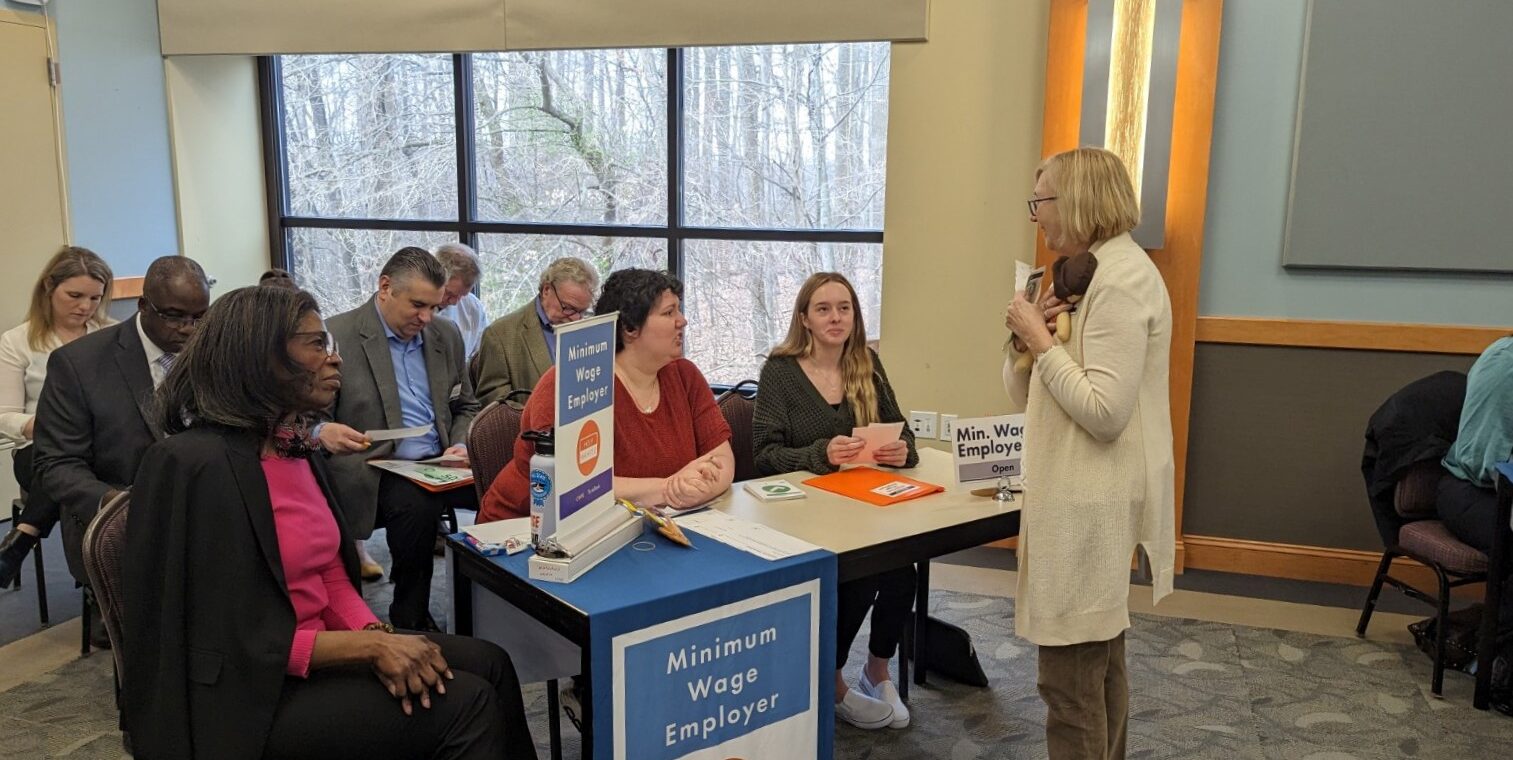Deepening Understanding the Realities of Poverty: An Experience for Everyone
The Caroline Huber Holistic Wellness Center, on March 23, 2023, supported over 40 leaders from Brookdale Community College and Monmouth County, along with 25 students, to engage in a poverty simulation called COPE, which stands for Cost of Poverty Experience. This simulation is designed to offer an understanding of the struggles faced by low-income families. The three-hour training spans four weeks, with each week representing a month in the life of a poverty-stricken family. Participants are assigned distinct roles within the family and must visit resource centers around the room to access various services. COPE is rooted in the real-life experiences of twelve families, emphasizing the human impact of poverty. The intention behind COPE is to cultivate partnerships with the wider community to improve outcomes for families living in poverty.
“The Caroline Huber Holistic Wellness Center believes in the power of social justice and is committed to its mission,” said Associate Vice President of Strategic Partnerships Anita Voogt. “We are proud to launch this program as one of the first steps towards fulfilling that mission. Our gratitude goes to Senator Vin Gopal for his tireless efforts to support the College and the community with these important social justice initiatives.”
During the simulation, participants wear name tags with their first name and a number for a last name to symbolize how people living in poverty can often feel like they are treated as numbers. The families have a variety of scenarios, and the participants must navigate the challenges of living in poverty. The simulation includes scenarios such as going to the grocery store, kids going to school, and going to work. Students served as employees at the resource centers, providing family participants with the services they needed. The simulation is meant to be as realistic as possible to provide participants with an accurate experience of what it is like to live in poverty.
“This is a training you will remember for a long time,” said National Training Director Heather Cunningham.
A person playing a homeless single mom wearing bed bug stickers said she had to be careful not to be penalized and kicked out of the shelter. And that she had only two more weeks to find housing. She was going to the Pawnshop to see if she could get some funds for rent. It is insane,” she said. “The baby comes first, I got some baby formula, and I have $250 for rent.” But she does not know what will happen next month. “That’s the scary part,” she said.
Transportation is a key barrier for low-income families, so the simulation includes walking, public transportation, and a car. Those with a car must purchase gas weekly, while those without a car must obtain a transportation pass from Social Services or Mega Mart. All bills in the simulation are monthly, due in the first week, and resource center employees can decide to allow full or partial payments.
“We are ending up saying no a lot. Most people cannot be accommodated even for the affordable options,” said one of the students simulating an employee at Mega Mart.
“I’m a mess,” said another exasperated family participant. “I’m a single mom of a 5-year-old, but I don’t have access to my child. I owe $200 in child support, $200 in utilities, and I have a piece of crap car.”
After the training, the participants expressed how they felt. For example, someone who played an eleven-year-old felt fear and frustration. Another nine-year-old student said they felt angry because they needed to make too many adult decisions and were involved in conversations they should not have been in. A couple of the moms said they felt like they were bad moms. They felt anxiety, desperation, hopelessness, and anger.
“A lot of times we do not talk about how poverty attacks our identity,” said Cunningham.
Some made decisions during the simulation that surprised them. They did something they would not have done in real life. For example, there was a person who played a drug dealer. They said, “I felt weird. I was giving drugs to children, and I hated it because they were so naïve. But even though I felt bad, and I knew I was wrong, my family was desperate, we needed the money, and I had no choice. Yeah, I was looking for vulnerable people in society.”
Over 70,000 people across the country have completed COPE, and many participants have called it the most meaningful training they have ever had. Through this simulation, Brookdale and Monmouth County leaders, along with student members of the Psychology and Human Services Club, will collaborate to develop improved systems that support under-resourced students and communities.
For more information about the Caroline Huber Holistic Wellness Center visit their website.
 Bookstore
Bookstore  Self Service
Self Service  Video Library
Video Library 
